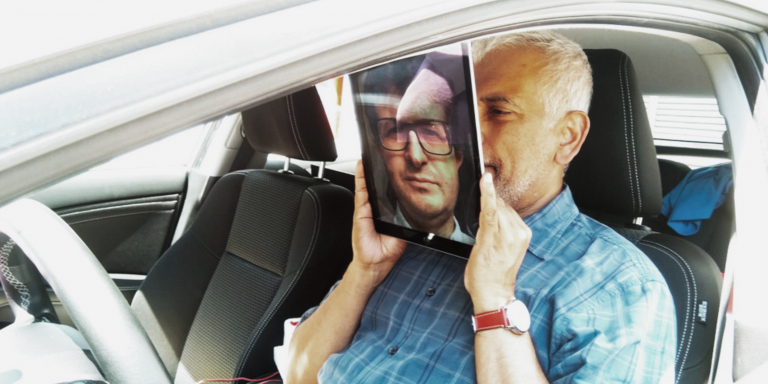
As automakers look to improve the security of their cars, they are increasingly interested in facial recognition. At CES 2019, Hyundai showcased its Genesis GV60 model that is equipped with this technology. The Biometrics Security and Privacy Research Group at the Idiap Institute have developed tools for more efficient and reliable facial recognition techniques in the automotive industry. They have made their results available as open source.
Artificial intelligence and machine learning allow facial recognition systems to be reliable. Car manufacturers are turning to this technology and its applications. In a family or a company, several people may have to drive the same car, they have to adjust the seat height, move it forward or backward, adjust the mirrors. Cars equipped with facial recognition, such as the Genesis GV60, do this automatically, and can even change the settings for the suspension, brakes and steering wheel.
Idiap
The Biometrics Security and Privacy (BSP) group at Idiap focuses on three main research areas:
- Biometric recognition: study and development of new recognition algorithms based on biometrics, in particular for face, voice and vein biometrics.
- Detection of presentation attacks
- Protection of biometric templates
The BSP group supports the reproducibility of research, so that its work can be validated and developed by the broader research community. For reproducibility, it primarily uses Bob, a Python-based signal processing and machine learning toolkit, which it shares freely for academic purposes. The group also develops and maintains the BEAT platform, an MLaaS platform that complies with Swiss and European data security standards.
Idiap’s detection system
The integration of this technology in vehicles is complex: on-board computing resources are limited, the response must be delivered in real time and be of a high level of reliability. To ensure reliable and robust facial recognition, scientists from Idiap’s Biometric Security and Privacy Research Group have made two major contributions. On the one hand, they have developed a “light” computer tool based on neural networks. On the other hand, they have created a biometric database specifically for the car in order to improve the reliability of the sensors. This data represents more than 5,800 videos of 40 people filmed under various conditions and nearly 1,800 fraudulent identification attempts using paper and silicone masks or images and videos on a screen.
Infrared sensors and public databases
The group’s researchers presented their work in a scientific publication, “Domain-Specific Adaptation of CNN for Detecting Face Presentation Attacks in NIR.” They explain how they developed a facial PAD (presentation attack detection) system for the automotive domain, based on a single NIR (near infrared spectroscopy) camera to continuously check whether the driver’s face is authentic or not.
“Our work has two main contributions: first, a lightweight facial PAD framework was developed using a 9-layer convolutional neural network (CNN). With its compact size and limited set of operators, it can be deployed in a resource-constrained embedded device to achieve near real-time inference. To mitigate the problem of limited training data (PAD face in NIR) for a given system, we develop an efficient mechanism to obtain this CNN through a combination of domain-specific layer adaptation and task-specific fine-tuning of a basic CNN. As a second contribution, we collect a large facial PAD dataset with over 5800 videos, acquired in NIR (940 nm) illumination, for use cases in vehicles. This dataset, named VFPAD, captures several real-world variations in terms of environmental parameters, lighting, subject pose and appearances. Based on the VFPAD dataset, we show that the proposed facial PAD method achieves very high performance (overall accuracy ≈ 98.0%), and also outperforms several baseline facial PAD methods. The dataset will be shared with the broader scientific community for research purposes.”
Article sources:
Scientific Publication “Domain-Specific Adaptation of CNN for Detecting Face Presentation Attacks in NIR.”
Public database
Translated from Un groupe de recherche de l’institut Idiap améliore la reconnaissance faciale dans les voitures









